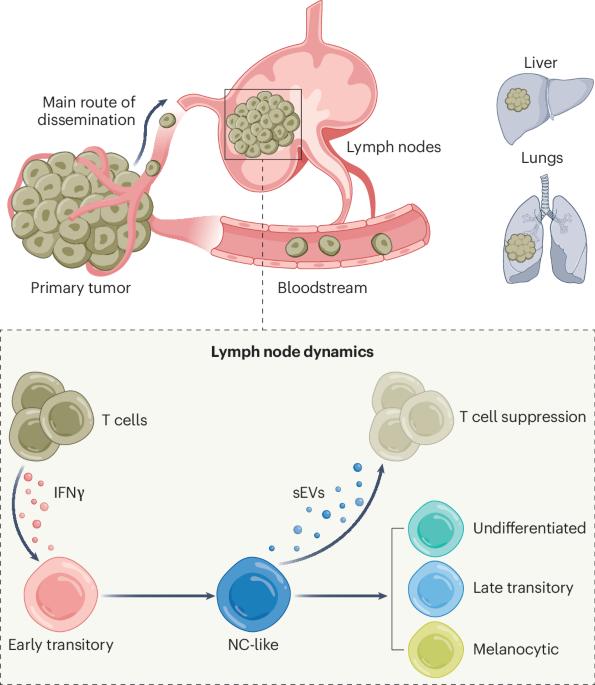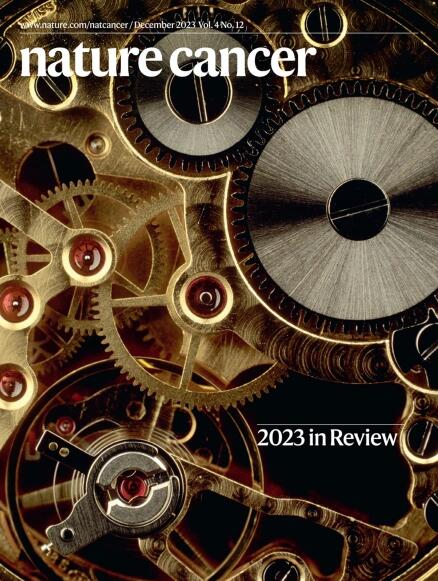在淋巴结中寻找黑色素瘤转移起始细胞。
IF 28.5
1区 医学
Q1 ONCOLOGY
引用次数: 0
摘要
长期以来,转移起始细胞(mic)的复杂性质阻碍了我们对癌症如何扩散和如何预防的理解。一项研究现在确定了潜在的MIC群体和细胞外囊泡在这些细胞的免疫逃避策略中的关键作用。本文章由计算机程序翻译,如有差异,请以英文原文为准。

Fishing for melanoma metastasis-initiating cells in lymph nodes
The complex nature of metastasis-initiating cells (MICs) has long hindered our understanding of how cancer spreads and how to prevent it. A study now identifies a potential MIC population and a crucial role for extracellular vesicles in the immune-evasion tactics of these cells.
求助全文
通过发布文献求助,成功后即可免费获取论文全文。
去求助
来源期刊

Nature cancer
Medicine-Oncology
CiteScore
31.10
自引率
1.80%
发文量
129
期刊介绍:
Cancer is a devastating disease responsible for millions of deaths worldwide. However, many of these deaths could be prevented with improved prevention and treatment strategies. To achieve this, it is crucial to focus on accurate diagnosis, effective treatment methods, and understanding the socioeconomic factors that influence cancer rates.
Nature Cancer aims to serve as a unique platform for sharing the latest advancements in cancer research across various scientific fields, encompassing life sciences, physical sciences, applied sciences, and social sciences. The journal is particularly interested in fundamental research that enhances our understanding of tumor development and progression, as well as research that translates this knowledge into clinical applications through innovative diagnostic and therapeutic approaches. Additionally, Nature Cancer welcomes clinical studies that inform cancer diagnosis, treatment, and prevention, along with contributions exploring the societal impact of cancer on a global scale.
In addition to publishing original research, Nature Cancer will feature Comments, Reviews, News & Views, Features, and Correspondence that hold significant value for the diverse field of cancer research.
 求助内容:
求助内容: 应助结果提醒方式:
应助结果提醒方式:


